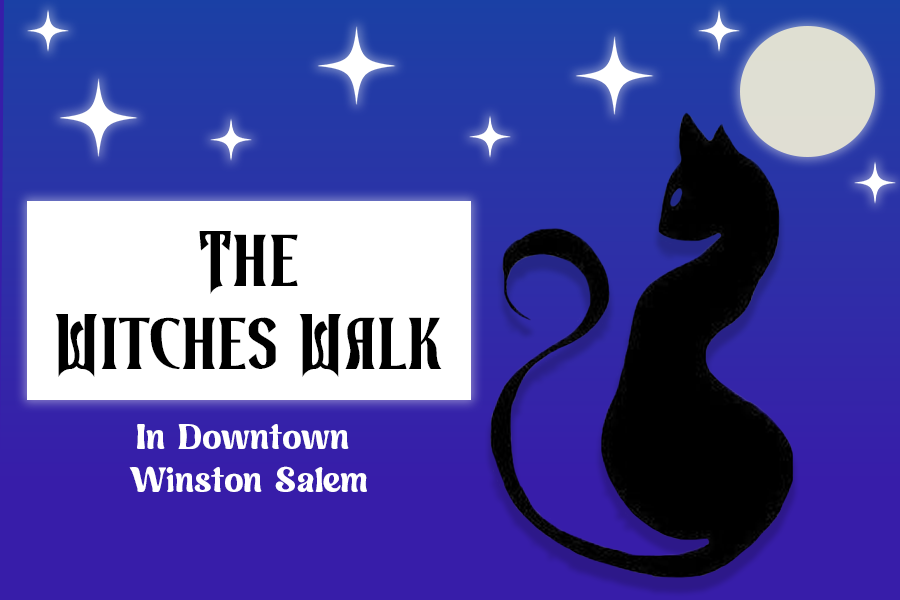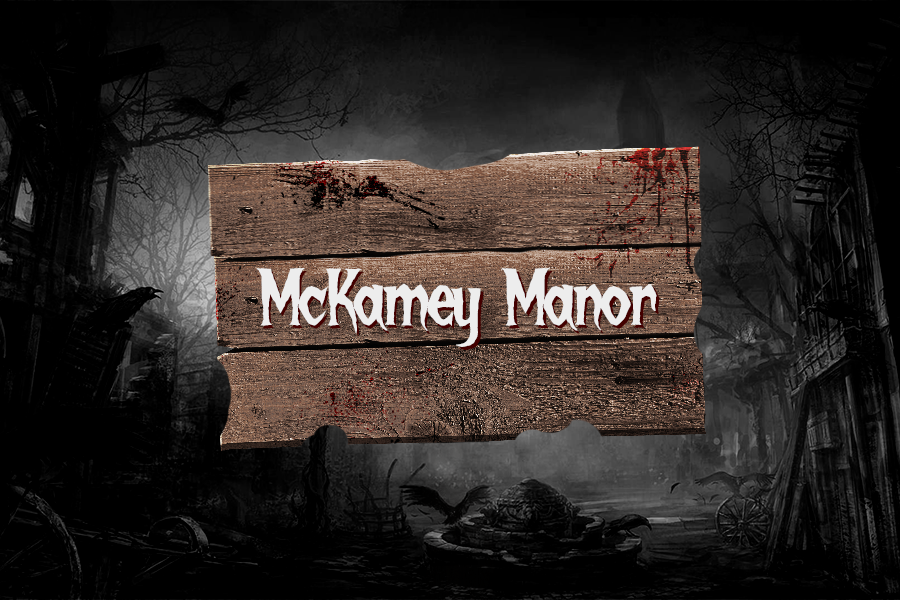Films that will make you think: Psychological thriller analysis
May 31, 2021
My favorite kind of films are the ones that make you think: I love the ones that make you work for the message they’re trying to get across by investigating dark concepts that no one likes to talk about or by leaving a bit of ambiguity so that you’re the one who has to figure out what exactly happened. Whether they toy with your mind or pose difficult questions, I always appreciate them. As a result, I’ve fallen in love with psychological thrillers and analyzing them in depth. My personal reviews of what I consider to be some well-made and thought-provoking psychological thriller films are as follows. Also, there are several spoilers ahead, so be wary of that as you read through.
Horse Girl (2020), directed by Jeff Baena
Horse Girl brings you into the mind of Sarah, a young woman who is slowly falling victim to her genetic psychosis. To the viewer, it’s hard to differentiate reality from Sarah’s perception of it, since the film is shot from her perspective. But of course, that’s the whole point. As the film progresses, the burden is turned onto the viewer in an attempt to distinguish what Sarah cannot. Initially, Sarah just seems a bit awkward and weird, but that later evolves into complete oblivion to the true ongoings around her. As others kindly recommend she go to therapy, she refuses help because she believes people will think of her as “crazy.” As she continues to slip in and out of reality, she clings to television and conspiracy theories as a way to distract her from the recent death of her mother. This last-ditch effort backfires, and she is left struggling to keep her functioning mind separate from her delusion and paranoia. She begins to connect more to her idealistic version of the world than her true surroundings, believing fiction to be fact as it pertains to her. In my interpretation, Sarah, or rather, her subconscious, eventually determines that the unfortunate state of things is too much for her mind to handle and allows herself to become fully untethered from reality, completely giving in to her delusions. However, part of the beauty of this film is that there are multiple ways that the end of Horse Girl can be interpreted. The entire film is so ambiguous, and yet so carefully orchestrated, that you could make a valid argument from various angles as to what you think the conclusion may be.
Rating: 9/10; I love the ambiguity and space it leaves to the viewer for personal interpretation.
Hated in the Nation (Black Mirror: 2016), directed by James Hawes
Technically, this is an episode from an anthology television series as opposed to a movie, but its duration is one hour and a half, the same length as a short movie. If you haven’t watched Black Mirror, every episode urges the viewer to think and debate certain aspects more in depth than you might have previously considered, typically revolving around technology. More specifically, Hated in the Nation, although released in 2016, allows increasingly important questions to be posed. For example, you might ask yourself, “How should we responsibly hold others accountable on social media?” Is ridicule an acceptable response? Or should they just lose their platform? Hated in the Nation examines just how carelessly dark society can be and the mental repercussions that can take on a recipient of so much hate. In this film, a Twitter hashtag, #DeathTo, trends. Those who tweet it just think of it as a way to “cancel” a person for their absurd and offensive actions. Naturally, someone takes it too far and actually murders the people with the highest #DeathTo Twitter mentions each day, using automated, robotic bees that burrow in the brain. For some victims, their wrongdoings would be repeated and cruel, but others’ wrongdoings only happened once and were relatively minor. However, in a twist ending, those who wished harm unto the wrongdoer met a bitter end as well. Applying a more tangible approach, this episode illustrates how our actions have consequences, whether you’re the active perpetrator creating the deeply offensive content, or an unknowing bystander encouraging the chaos.
Rating: 7.5/10; It has a beautifully dark message, but it’s not a favorite of mine.
Extremely Wicked, Shockingly Evil and Vile (2019), directed by Joe Berlinger
Romanticizing and glorifying serial killers is an unfortunate Hollywood truth. Many renderings of murderers frame them as desirable, both in terms of appearance and personality. However, this film does a fantastic job of exposing how abominable these people actually are. Extremely Wicked, Shockingly Evil and Vile gives a unique and authentic take on the genre of true crime. By telling the story from the perspective of Liz Kloepfer, long-time girlfriend of Ted Bundy, the viewer is granted a more vulnerable and genuine look at how infamous killers can wreak havoc on others’ lives. Liz initially isolates herself from those who just want to help her, turning to alcohol as a refuge. As she begins to realize what a monster Bundy truly is, she slowly makes the transition back into a healthy life by staying sober and allowing others to become close to her and her daughter once again. This harrowing drama depicts the guilt that the innocent can carry with them, even strictly through association with the guilty party. A main point made in this film is that serial killers aren’t just a distant possibility; they affect real people. They are often wildly convincing master manipulators, and this film illustrates just how willing others are to believe them, whether it’s from utter dismay or hybristophilia (a sexual disorder in which one is attracted to those who commit violent crimes). By delving into how relationships and family dynamics are affected, this film will leave you rethinking how other true crime stories are framed versus how they should be.
Rating: 8/10; I love the unique take on Bundy; it’s so creative, and it has phenomenal acting.
Joker (2019), directed by Todd Phillips
Joker takes an unexpected look at the mind of someone who is mentally ill, both from the perspective of the one suffering as well as a meta perspective of society. The utmost and, really, only thing Arthur wants is to be accepted by a society that constantly rejects him. One day on the train home, something finally snaps in him as other passengers belittle and beat him. He point-blank shoots them on the train, likely a reference to the Goetz subway shooting — a New York vigilante incident from 1984. But Arthur finds purpose in killing those men for a different reason: to him, they represented the society that constantly hurt him. As time progresses, the infamous Clown Vigilante (Arthur) gains notoriety and recognition — the only thing he has ever desired. However, people are so wrapped up in their own agendas to notice that Arthur didn’t kill them because he was taking a political stance against capitalism (from my interpretation, Joker takes place in 1920s New York — the height of The Red Scare), but he instead killed them because he was exhausted from the constant ridicule he got from everyone around him. Then another plot line throughout the film is his attempted career in stand-up comedy. Murray Franklin, Arthur’s idol, invites him on his comedy show, but Arthur recognizes that Murray only plans to make jokes at his expense, just as everyone else has always done to him. Negativity engulfs Arthur as the two plot lines — the Clown Vigilante movement and Arthur’s comedy career — tie together at the end. He fully caves to his gradually consuming psychosis when he finally goes on the show and murders Murray. In its entirety, Joker is filled to the brim with ingenious symbolism, allowing the viewer to debate a myriad of concepts. This film perfectly walks the fine line of leaving much up for artistic interpretation while still guiding the viewer toward a central message: society does not treat all neurodivergent people with the respect that they deserve.
Rating: 10/10; The acting of Joaquin Phoenix was unparalleled, so much so that he won an Oscar in 2020 for Best Actor, in recognition of Joker.
For me, the difference between a movie and a film is huge, albeit subjective. I define a “film” as a feature that is very well made, namely with artistic directing and unique writing. A “movie” is a feature that might be entertaining, but isn’t anything to reflect on for days to follow. All of these features listed above are films, to me. And they’re films that beg you to debate difficult questions within your own mind, all expertly directed and beautifully executed. They’re works of art that I recommend with the highest of praise.





